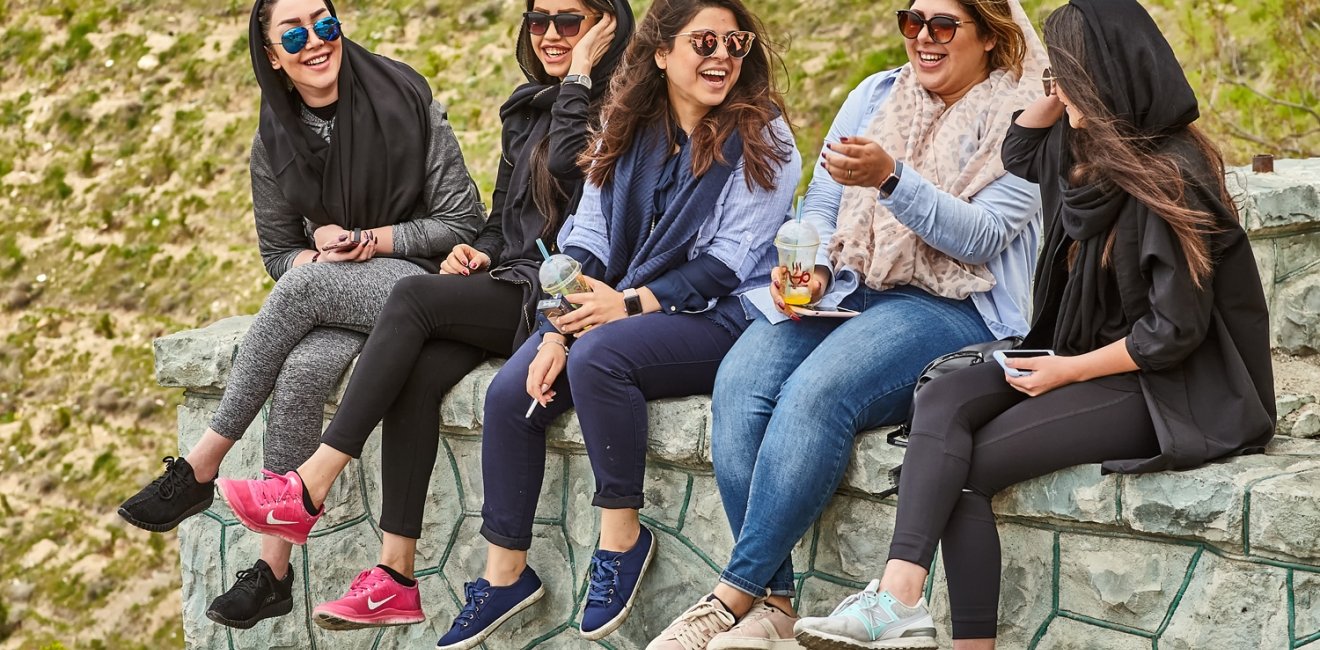
A blog of the Middle East Women's Initiative
Every year, on March 8 women in most of the world celebrate International Women’s Day—but not in Iran. Since the inception of the Islamic Republic, as part of its policy of de-westernization, it is the Birthday of the daughter of the prophet Mohammad, Fatima, that is celebrated as Mother’s Day and Women’s Day. Fatima is revered in Shi’ite Islam and especially in Iran. I remember that on the occasion of Fatima’s birthday in 2007 when I was still incarcerated in the political wing of Evin prison, the female guards distributed sweets and cakes to the women prisoners. They kept saying, “it is mother’s day and women’s day.” They were implying that “here, we don’t celebrate International Women’s Day.” I remember asking them how come the Supreme Leader issues no pardons for women activists in prison on Women’s Day when he issues such pardons to mark other historic days. As an answer, I faced a stare and total silence.
A main reason the government changed the date for International Women’s Day was the bitter memory of March 8, 1979. Thousands of women poured out into the streets of Tehran and marched to Prime Minister Mehdi Bazargan’s office to protest the imposition of the hijab. Women were beaten up by thugs and chased by the police. Nevertheless, year after year, on the occasion of International Women’s Day, Iranian women activists use social media to show solidarity with women across the world and as a gesture of self-assertion as women.
Women, more than any other community of Iranians, fought hard to push back the boundaries imposed on them by the regime. They continued to do so in 2018. Women paid a price. They suffered imprisonment, torture, separation from their families and were barred from working in certain professions. Yet they remained at the forefront of those demanding their rights. Women in both the private and public sectors, rich and poor, conservatives and liberal, all call for equality under the law and full participation in public affairs.
In December 2017, a brave young woman stood on a utility box on the corner of a busy street, her scarf removed from her head and tied to a stick. She was boldly waving it before passers-by and passing cars. This was a novel way of a woman making her voice heard. Her example was rapidly imitated by a number of other women. Security officers predictably arrested several of these women, and the Revolutionary Courts predictably sentenced them to long prison terms. More and more women are ignoring the hijab at every possible opportunity.
Young women post their pictures on social media--and not necessarily with their hair covered. Social media provides the link between the younger generation and women to the rest of the world. In Iran, too, 2018 witnessed the planting of the seeds of the “Me Too” movement, although it is still in its elementary stage. Violence against women is no longer swept under the carpet; it is discussed openly. Women have also taken full advantage of access to education, and the large number of women university graduates has opened new venues to women. However, equal access to education has not meant equal access to employment. The government has been unable to provide the younger generation with jobs. According to a recent World Bank study, Iran ranks 185th out of 187 world countries in terms of economic equality.
Additionally, the women who serve in the administration and in leadership government positions in Iran and who are well-placed to push for issues important to women, do not often or openly support women protestors or the legitimate demands of these women. They do not speak out forcefully when women are arrested, beaten up and imprisoned. They hardly push for changes in the Family Law, which disadvantages women. There are women serving as vice presidents, in parliament, as mayors, and district governors. One might expect from them solidarity with women activists. Yet they do not practice it.
Looking ahead to 2019, Iranian women no doubt will continue to press for broader rights and integration in society as equals to their male counterparts. The government must stop filling its prisons with protestors. Instead, it should try to address women’s problems and demands; revisit the family law, which, among other things regulates the age of marriage and restricts women’s rights in matters of marriage, divorce, child custody and polygamy. In fact, not only in Iran, but also across the region, a progressive Personal Status Law is the key to emancipation of women.
Author


Middle East Program
The Wilson Center’s Middle East Program serves as a crucial resource for the policymaking community and beyond, providing analyses and research that helps inform US foreign policymaking, stimulates public debate, and expands knowledge about issues in the wider Middle East and North Africa (MENA) region. Read more


Middle East Women's Initiative
The Middle East Women's Initiative (MEWI) promotes the empowerment of women in the region through an open and inclusive dialogue with women leaders from the Middle East and continuous research. Read more

Explore More in Enheduanna
Browse Enheduanna
Women are the Catalysts for Change in Lebanon

How Education Can Empower Young Women in MENA


